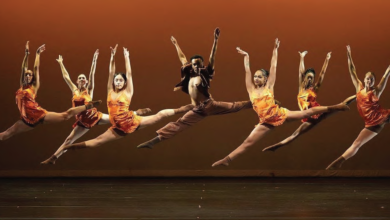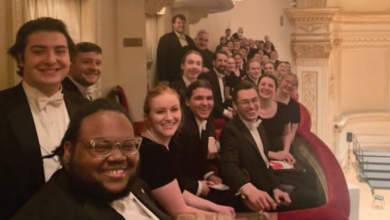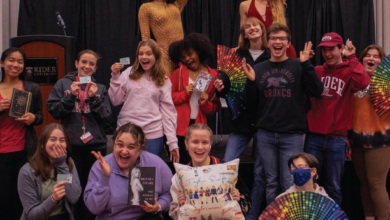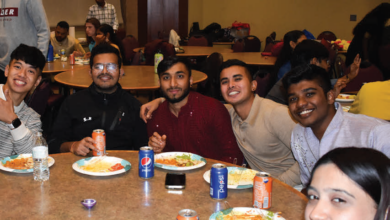
Michael Eric Dyson talks resiliency and activism at virtual event
By Sarah Siock
Social justice, race and police reform were just a few of the topics discussed by activist Michael Eric Dyson at a virtual event hosted by The Center for Diversity and Inclusion (CDI), on March 4.
Remote learning has impacted each program at Rider in unique ways. In turn, professors, administrators and students have adapted to get the most out of their education, regardless of the current circumstances. This is very clearly seen within the College of Education and Human Services.
The event titled, “Race and Democracy: Building Resiliency as an Activist,” attracted nearly 100 participants to hear the renowned scholar speak. Dyson has a long resume which includes professor, author, ordained minister and contributing opinion writer at The New York Times.
Dyson began his speech by describing the devastating effects the coronavirus pandemic has had on communities of people of color.
“We are facing two pandemics. On the one hand, we have the global pandemic of a virus and all Americans are hurt, but we know that African Americans, Black people and Latinx people are disproportionately impacted by this horrible disease,” said Dyson. “The pandemic continues to remind them of the racial toll, and the racial cost on black and brown bodies trying to grapple with systemic racism, systemic inequity and systemic oppression.”
Dyson went on to speak about police brutality and the killings of George Floyd and Breonna Taylor. He referred to these social injustices as, “the second pandemic” facing Black Americans.
“On the other hand, we have the racial pandemic. Before the world, in broad daylight, George Floyd lost his life. It ignited an international global resistance against white supremacy, systemic racism, structural oppression and institutional inequality,” said Dyson.
Dyson tied several important messages of his speech to songs written by Black recording artists.
Throughout the event, Dyson broke out into song to describe the meaning behind the lyrics of music from Motown singers such as Smokey Robinson, Stevie Wonder and Michael Jackson. Dyson grew up in Detroit, Michigan, where Motown Records was founded. He described the music that came from the city with a theme of “love, hope and optimism.”
“Motown was a culture that encouraged us to be unapologetically Black. Growing up in that city was extremely important because it gave me a sense of who I was,” said Dyson.
During the event, audience members had the opportunity to ask Dyson questions. Much of the Q&A revolved around Dyson’s advice to students on activism and becoming involved in the political landscape. He encouraged young people to be the voice of change they want to see.
“Being on top of critical issues will warrant your recognition. As a worker speaking up joining forces, gaining access by means of climbing up that ladder, but also showing yourself worthy of the kind of participation by the good work you’re willing to do,” said Dyson. “In terms of politics, you have to go out and vote for the right people. You have to be willing to roll up your sleeves and vote against those policies, practices and legislation that are an attempt to restrict us to get our leaders to raise their voices.”
Junior popular music studies major Trevor Sullivan, who served as the moderator of the event, said Dyson’s advice resonated with him.
Sullivan said, “The most valuable piece of advice Dr. Dyson gave at the event was that we need to be in the room where big decisions are made. As a young man, a young individual, we want to be in the room where it happens.”
To close out the event, Executive Director of the CDI Pamela Pruitt thanked Dyson in a speech where she became emotional. In an interview with The Rider News, Pruitt said she was thankful the event ran smoothly and that she became emotional due to a racist Zoom bombing incident that took place in February during a Black History Month event at Rider.
Pruitt said, “I want our campus to be a better place for our Black students. I tried to make the event yesterday as safe a space as possible. We have to think about the shoulders upon whom we stand and we have to keep moving. We cannot back down.”



